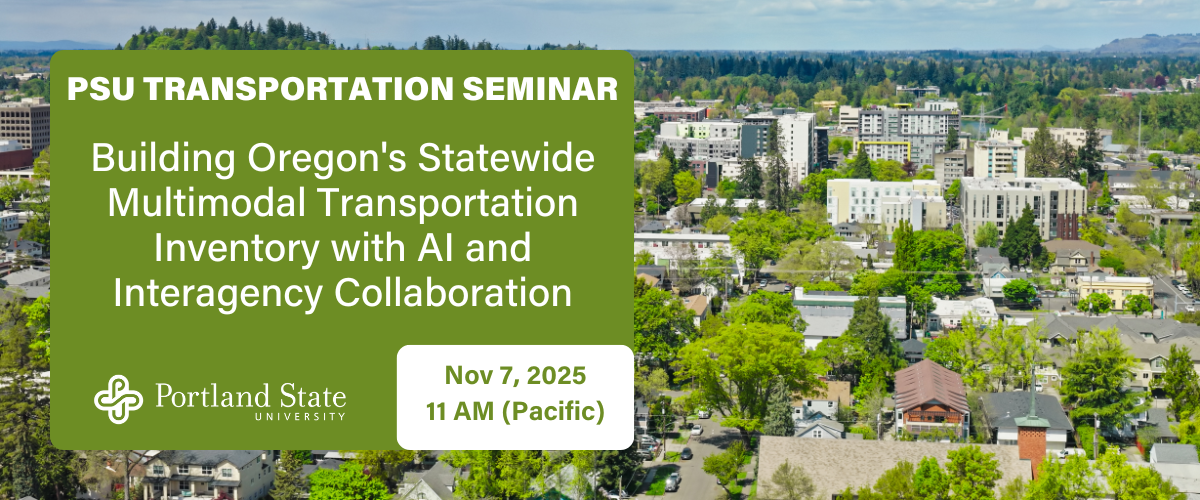PRESENTATION ARCHIVE
 THE TOPIC
THE TOPIC
ODOT and 48+ local agencies are collaborating on the development of a multimodal data set for transportation planning within metropolitan areas.
Revisions to Oregon's Transportation Planning Rules (TPR) set in motion the need for more multimodal data and analysis in local plans. The multimodal data inventory includes vehicle and freight facilities, bicycle and pedestrian facilities, transit facilities, and other relevant data such as key destinations and crashes.
Starting from the local agency GIS systems and supplemented with real world use of AI for developing bicycle and pedestrian facilities, the team is defining and constructing a shared statewide multimodal data set. The final work product is a consistent dataset for Oregon's metropolitan areas, as well as a long-term, adaptable data governance plan for cooperative maintenance and use of the data.
KEY LEARNING OUTCOMES
- ODOT’s Multimodal Inventory: Key lessons from an ambitious statewide multimodal data effort
- TPR Integration: What new rules mean for planning and data workflows
- AI in Action: Real-world uses of emerging tech in Oregon planning
- Interagency Cooperation: Building a dataset that works for 48+ local agencies with a long-term, adaptable data governance plan

SPEAKERS
Ben Stabler, National Director of Modeling and Analytics, DKS Associates

Ben Stabler is a Principal at DKS Associates, a specialized transportation planning and engineering firm based here in Portland. He has over 23 years of industry experience and leads DKS' Modeling and Analytics practice. He is excited to collaborate with ODOT and several other Oregon transportation agencies on this statewide effort to build multimodal data for transportation system planning.
Theresa Conley, Principal Planner, Oregon Department of Transportation

Theresa Conley is a Principal Planner with the Oregon Department of Transportation where she leads a team supporting implementation of Oregon’s updated Transportation Planning Rules. Theresa has over 20 years of experience in planning and community development, working in rural, urban and international settings. Theresa has a Masters of Community Planning from the University of Cincinnati.
PROFESSIONAL DEVELOPMENT
This 60-minute seminar is eligible for 1 hour of professional development credit for AICP (see our provider summary). We can provide an electronic attendance certificate for other types of certification maintenance.
ADD IT TO YOUR CALENDAR
Portland State University's Transportation Research and Education Center (TREC) is a multidisciplinary hub for all things transportation. We are home to the Initiative for Bicycle and Pedestrian Innovation (IBPI), the data programs PORTAL and BikePed Portal, the Better Block PSU program, and PSU's membership in PacTrans, the Pacific Northwest Transportation Consortium. Our continuing goal is to produce impactful research and tools for transportation decision makers, expand the diversity and capacity of the workforce, and engage students and professionals through education, seminars, and participation in research. To get updates about what's happening at TREC, sign up for our monthly newsletter or follow us on social media.




